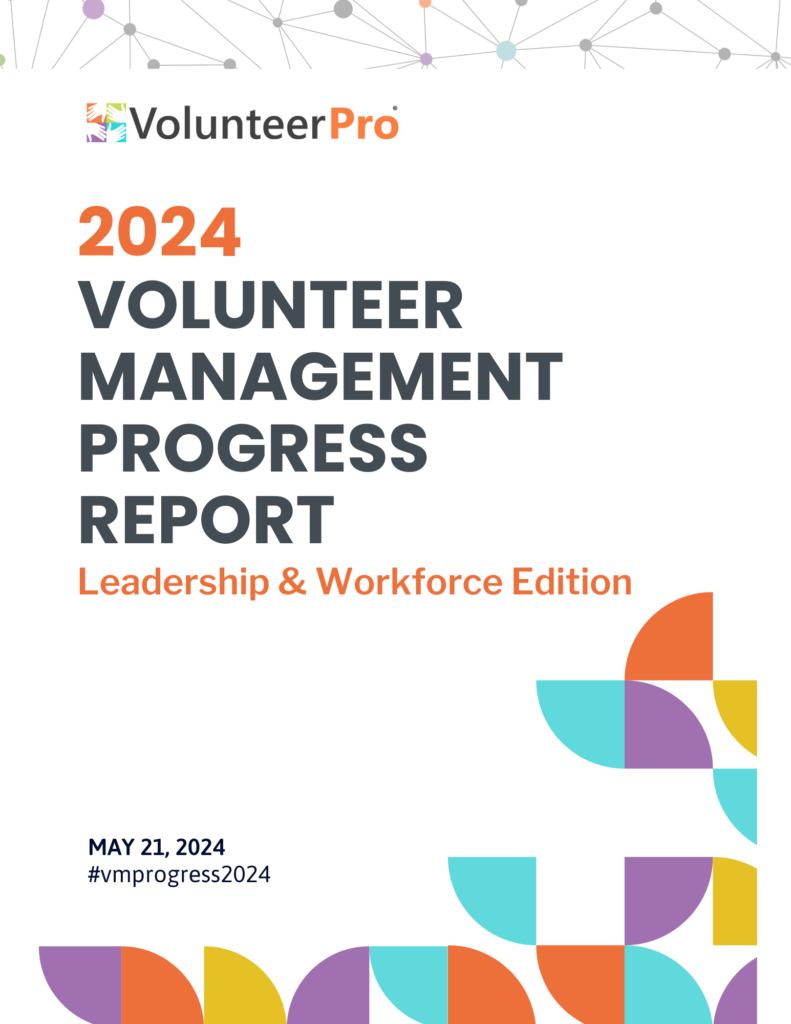
May 9, 2024
Episode #109: When a Scarcity Mentality Becomes a Habit
In this episode of the Volunteer Nation podcast, host Tobi Johnson discusses the widespread issue of scarcity mentality within the nonprofit sector and how it limits organizations’ ability to grow and engage volunteers effectively.
Tobi emphasizes that this mentality leads organizations to focus on constraints rather than opportunities, hindering investment in volunteers and the infrastructure supporting them. She highlights the importance of viewing spending on volunteer programs as an investment, rather than a cost and shares practical tips on shifting mindset, calling out scarcity when it appears, and ensuring organizations provide sufficient support and resources for volunteers in your non-profit.
Scarcity Mentality – Episode Highlights
- [00:23] – Addressing the Scarcity Mentality in Nonprofits
- [01:46] – The Cost of a Scarcity Mindset: A Deep Dive
- [04:24] – Investing in Volunteers: The Path to Abundance
- [12:06] – Overcoming Scarcity: Strategies for Nonprofit Success
- [21:07] – Closing Thoughts: A Call to Action for Nonprofits
Scarcity Mentality – Quotes from the Episode
“I believe we must evolve and start to look at abundance, at the resources that are already out there, and making investments in expanding those resources because volunteers can be an unlimited resource for change.”
“We often think about things that are impacting our budget line items as costs, and certainly they are expenses in our budget. But what is the return on investment that could happen because of that expense or investment?”
Helpful Links
About the Show
Nonprofit leadership author, trainer, consultant, and volunteer management expert Tobi Johnson shares weekly tips to help charities build, grow, and scale exceptional volunteer teams. Discover how your nonprofit can effectively coordinate volunteers who are reliable, equipped, and ready to help you bring about BIG change for the better.
If you’re ready to ditch the stress and harness the power of people to fuel your good work, you’re in exactly the right place!

Contact Us
Have questions or suggestions for the show? Email us at wecare@volpro.net.
Rate, Review, & Follow Us on Apple Podcasts
If you love the content Tobi shares on the Volunteer Nation podcast, consider rating and reviewing the show! This helps us reach more people – and help more good causes just like yours – successfully engage enthusiastic, dedicated volunteers with less stress and more joy.
Click here, scroll to the bottom, tap to rate with five stars. Then, select “Write a Review” and let us know what you loved most about this episode!
Also, if you haven’t done so already, follow the podcast so you don’t miss a thing. Follow now!
Subscribe to ProNews: Our Weekly Resource Roundup
If you’d like to stay up to date on all new podcasts, blogs, freebies, and deals posted on our Tobi Johnson & Associates and VolunteerPro websites, subscribe to our weekly ProNews newsletter.
Every Wednesday, we’ll send you a digest of our freshest content, plus a bonus! Once you confirm your subscription, you’ll get our [Free eBook] The New Volunteer Manager: The First 90 Days.
Episode #109 Transcript: When a Scarcity Mentality Becomes a Habit
Tobi Johnson:Hey everybody, it’s Tobi Johnson from the Volunteer Nation podcast, and today I want talk about a troubling trend in our sector, and that is when a scarcity mentality becomes a habit, and it’s really becoming prevalent, it’s becoming very clear that this is holding us back.
You know, we just wrapped up our spring membership promotion for the Volunteer Pro Membership, and first off, I want to formally welcome all our new members. I’m really excited to work with you and have you on board and help you grow volunteer involvement at your organization. But I have to say that I was heartbroken to hear from so many of you that a lack of budget was the reason you didn’t join. You saw the value; you saw what could be done. help you move forward but your organization just didn’t have the budget.
And I have to say this is a problem. It’s not a problem because you didn’t join our awesome membership, which is totally awesome and great value. Certainly, I’d love to help you overcome the challenges you face. But what’s more or what this signifies is a scarcity mentality that’s holding us back. When a scarcity mindset or belief system is at work inside a non-profit, it severely limits your ability to scale
Staff and leadership end up focused on limitations, constraints, and a limited ability to scale. to take risks. This is what was bothering me. You know, our membership is 59 a month or 597 a year. It’s basically less than a cup of coffee a day. So, when an organization says they can’t invest 59 a month into their volunteers or their volunteer services or their volunteer coordinator, they’re basically saying we’re not going to invest at all.
This is a problem, and again, not because folks haven’t joined, chosen to join our membership or use our resources, because certainly there are others out there that folks can tap into more, we’re not willing to take the risk. And what signifies to me is that there’s a scarcity mindset at play.
You know, decisions that are made. Based on a constant fear of not having enough resources, it often leads to a pessimistic outlook that blinds us to opportunities, creative thinking, and an open and supportive organizational culture. So, when we have a scarcity mentality at play, we’re not seeing what’s out there for us.
We’re not seeing how we can grow and we’re more likely to be stuck in a mentality we’ve always done it this way. So, it’s hard. Our organizations constrict rather than expand, leaving little room for innovation and making a place where people are less likely to support us. You know, we create a space where we’re not expensive and people want to back a winner.
Yeah. You know, think about it. Why would volunteers support an organization that doesn’t support them or those who lead them with enough adequate resources? Why would volunteers choose an organization like that? You know, if your organization is struggling to attract volunteers and build back from COVID, going about things the same way you have in the past probably isn’t going to cut it in today’s world, nor will a scarcity mentality.
I am absolutely committed to this. I believe in this. You’re not a volunteer involving organizations, but you must invest in the expertise, the tools, the staffing, the open leadership and shared leadership models that really make it happen.
So, you know, evolution in our organization, specifically when we think about getting support, you know, sometimes we need a guide to take us to a new place. You know, even coaches need coaches, you know, that’s why I invested in my own. professional development and implementation support. I’m part of a mastermind.
I hire executive coaches to help me because I know that there’s things that I’m blind to that they can help me see. So again, whether you choose VolunteerPro as a support for your organization or another provider that is equally qualified, it doesn’t matter. Fresh ideas are often needed to support a breakthrough, you know, this also requires a shift from a scarcity mentality to a more enabling mindset.
So, for me, when folks come to me and say we don’t have the budget, what it tells me is that there’s a scarcity mentality at work in their nonprofits. Now, there are economic challenges, right? There are economic challenges, especially right now, and budget constraints are real. But when your organization can’t invest even 59 a month, which is the cost of our membership, it’s basically saying we have no budget for volunteers. We have zero budget. We’re going to pay for some staff, but that’s it.
Or that your budget is hidden, that the real costs of volunteer involvement are hidden. are not being seen. So, there’s costs around software, there’s costs around staffing, etc. So, you know, it caused me to start to ask some questions. So, when I was writing my volunteer pro member update email this morning, I write an email to our members every morning or every Monday, and I ask questions and I pose ideas and I get people thinking.
And this morning I started asking about this. I’m going to talk a little bit about resilience and how it plays into this scarcity mindset. You know, resilience is an essential part of leadership. We, in order to lead, we really must accept a little discomfort. We need to rise over and over again to overcome persistent challenges.
We need to learn from failure. It’s all part of the deal of leadership. But my question to my members this morning, after reflecting on this scarcity mentality that we find ourselves so bathed in across our sector. It’s almost like it’s, it’s a way of being and it’s not healthy. And so, I started to ask, when does that dogged determination, we have to push through cross over into savior syndrome that’s driven by our own egos or fear?
And when does victimhood take place on the part of staff because of years of organizational under resourcing? You know, it’s an insidious thing when we become accustomed to accepting not having sufficient resources to do our jobs. That takes root and it becomes a cancer in our organizations because we no longer Make the ask for things we need we stop asking, you know It also it made me ask is it okay that volunteerism and volunteer services are often given the short shrift You know, what does that do to our organization and the sustainability of our sector?
If we are chronically under resourced and when we suck it up and say, it’s okay, you know, Hey, we, it’s just part of the deal. Then by doing so, are we doing a disservice to our organization by covering up the need for resource or by accepting That we can do without and our volunteers, more importantly, can do without, you know, a scarcity mentality can pervade how our budgets function are put together, our resources and our staffing models. It blocks an organization’s ability to grow volunteer involvement and scale its impact. It simply constricts us. It can affect how our self-care is approached and can reverse, really result in burnout and turnover in staff, which also comes at a cost.
Because it’s so pervasive, I think across our sector, it’s often also really hard to pinpoint because we think it’s just the way things are. And so, it becomes part of our culture, a way of being, and it just feels normal. Hey, we’ve got to suck it up. We don’t have any resources. We accept that. And I think that’s doing a great disservice to both our volunteers, but also our organizations and our sector.
We are struggling y’all. We are struggling. Folks are having a hard time building back from COVID. We’re also seeing, for the first time, I, I looked on Google Trends to see what people were typing in Google around volunteer opportunities near me. And in the last couple months, it started to drop and really plummet.
And so even the community is deciding Hey, it may, it may be calling into question, should we support our nonprofits through volunteerism, or should we spend our time doing something else? Right? So, it’s always a balancing act. But if we’re not investing in our communities, why would we expect our communities to invest in us?
Not seeing it, right? So, I’ve got some to dos for you. if this is resonating with you, if you felt like this scarcity mentality is holding you back. I want to give you some concrete steps and some, maybe some, a couple of enabling beliefs that you might try on for size.
So, let’s pause for a break from my musings on the scarcity mentality that’s so prevalent in our sector. We’ll be right back.
If you’re enjoying this week’s episode of Volunteer Nation, we invite you to check out the Volunteer Pro Premium Membership. This community is the most comprehensive resource for attracting, engaging, and supporting dedicated high impact volunteer talent for your good cause.
Volunteer Pro Premium Membership. Helps you build or renovate an effective what’s working now, volunteer program with less stress and more joy. So, you can ditch the overwhelm and confidently carry your vision forward. And it’s the only implementation program of its kind that helps your organization build maturity across five phases of our proprietary system.
The volunteer strategy success path. If you’re interested in learning more, visit volpro.net/join
We’re back with my discussion of the nonprofit scarcity mentality. And I want to get to what we can do about it. I’ve talked about the problem. I painted the picture. It’s not an upbeat picture, but we’ve got to do something about it.
I really believe we’ve all got to do something about it. So, let’s dive into what you can do directly to confront a scarcity mentality at your organization, whether it be perpetrated by executive leadership, maybe you’re an executive leader and you’re experiencing this on the part of your board members.
Or maybe you’re a volunteer coordinator and you’re seeing it in your coworkers or your supervisor. Wherever we see it, we need to talk about it. So, the first thing we want to do is call it out for what it is. When you see a scarcity mentality, start asking some questions. So, hey, I see your point of view.
What fears are blocking us from moving forward? When you see a scarcity mentality, whether it’s, hey, we don’t have enough budget for that. Oh, really? Do we really not have enough budget for that, or could we find budget for that? How important is that thing we’re trying to get done? What kind of priority is it at our organization?
And is there, is this a fear-based decision or is this an abundance decision? Is it helpful for us to think this way going forward? What might we miss as we consider this decision? Or this way of thinking, continuing and even supporting this way of thinking. Or could a new way of thinking make a difference?
So, we can start calling out things and asking, because I think for the most part, a scarcity mentality is perpetrated by fear. It is a fear that everything could go away tomorrow. When we are chronically under resourced, we start to believe that we will never be fully resourced. And so, we never, we, we always think we never ask for more because we always believe it could all be taken away tomorrow.
Now, in some cases, this has happened. Organizations have shuttered their volunteer programs, which is. crazy to me because volunteers are a tremendous source of additional resource for your organization, not only as a pair of hands and talent, but also as connections, also as donors. So shuttering volunteer programs is a big mistake, I think.
So that’s the first thing. The first thing to do is to call it out for what it is, a scarcity mentality that’s blocking your progress. So, when you hear people saying things and you think it’s a scarcity mentality or fear based. Start talking about it. Ask, is there another way of thinking about this? We don’t have enough budget?
Okay. Is there another way of thinking about this? What is this investment? So, the second way of thinking is to switch from thinking about, for example, implementation support and training as a cost to the budget and more as an investment to future sustainability. That’s a big shift. It seems subtle, it seems little, but it’s actually a big shift.
We often think about things that are impacting our budget line items as costs, and certainly they, they are, they are expenses in our budget. But what is the return on investment that could happen because of that expense or investment? And you know, if you can track your data on where that return on investment is paying off, whether it’s volunteer donations, volunteer time, in kind resources, generated by volunteers, corporate donation volunteers.
If you get a good, solid data set, you can start to question whether or not that investment is really too much, or maybe you’ll start to show that the ROI is there. So having the data really helps when counteracting. a scarcity mentality. The third thing is to stop sucking it up. Stop saying, okay, that’s fine, we’re going to continue to be under resourced.
I think you have to start clearly communicating and considering the opportunity cost when inadequate support is provided. So, what are we losing out on because we don’t have enough software, don’t have enough budget, don’t have enough training, don’t have enough. whatever it is, right? You can counteract scarcity mentalities in yourself and others by also replacing them with enabling beliefs.
Here are a few. Here’s the scarcity mentality, really common in our sector. Because volunteers are free, both they and I need very little infrastructure and support to be successful. That’s a scarcity mentality. You could replace it with an enabling, relevant mindset. The work of volunteers expands across our agency and is vital to our success.
Also, volunteers are financial contributors. We all require adequate acknowledgement and support for our important work. So that’s an enabling mindset. So, let’s go find the budget to make this happen. Might be that the postscript to that, right? Here’s another scarcity mentality. Because I work in a nonprofit and in volunteer services, I should make extreme personal sacrifices to be, and be content to scrape by.
I should expect others, including those outside my organization, to do so as well. I come across this a lot because people expect me to scrape by and I’m like, no, I worked too hard to scrape by. Sorry, not accepting that. A replacement of that, you can replace that with an enabling prosperity mindset that says, I add unique value to my workplace and I’m faithfully doing my part to help our mission succeed.
Therefore, it is my organization’s responsible ability to invest in my work and professional growth. And I would add a PS to my volunteers as well. It’s their responsibility. And you’re right. Whether you’re the executive director, the volunteer coordinator, a volunteer leader, or anybody who’s contributing to the mission in a significant way, deserves support.
You know, scarcity mindset says, oh, we should just all make extreme personal sacrifices because we work in this sector called the nonprofit sector. Sorry, gang. I don’t buy it. I’ve been working in the nonprofit sector since I was 21 years old. Started right out in, actually in college, I started working in nonprofits and I’ve never subscribed to this.
I’ve never We are a very large sector in many countries around the world. We contribute to the GDP of our countries. We have a huge labor workforce. There’s no way we should be playing small ball. And everyone who comes to work for us or support us deserves respect and support and so we need to start budgeting for that, and that budget will come back.
The return on investment is large. I just wanted to call that out a little bit today because it was really starting to trouble me particularly, you know, it used to be okay. We could, we could get by with a scarcity mentality and we could continue to grow our volunteer programs, but that’s not the case anymore.
We are in a crisis and in terms of volunteer involvement around the world. And I don’t say that lightly. I don’t use those type of words very often when I talk about volunteerism, but when I started to see what’s happening out there, I realized that the chickens have come home to roost. That this lack of ability to see volunteers for what they are, which is a highly valuable resource for our non-profits and the refusal to support. Volunteers, the staff who support them, the people in the community that champion them with adequate resources are not going to help us thrive. So, we’ve got to switch gears. We’ve got to start looking into targeted investments. Where can we invest to engage the community more deeply? What ways do we have to change as an organization to do so?
Because the community and society is evolving and the nonprofit that doesn’t evolve is not going to be lasting for long and who loses out ultimately, who loses out ultimately the people we’re trying to serve the people that our mission has been designed directly to assist and support and champion and offer great things to and when we have a constricted scarcity mentality, we are not going to get there.
And so that’s my lesson. It’s a little bit of tough love today. I hope it wasn’t. Too much of a downer. I hope it felt empowering to you. I’d love to hear if you think this episode is helpful, helps you feel like, hey, there is something I can do because I did offer up some steps. You can take help; maybe help you see more and realize more of that scarcity mindset that’s out there.
To recognize it in yourself and other people and to call it out. I think I’ve done my job. So, I hope that this has helped. If you liked it, share it with a friend, and I’ll see you next week. Same time, same place on The Volunteer Nation. Take care, everybody.







